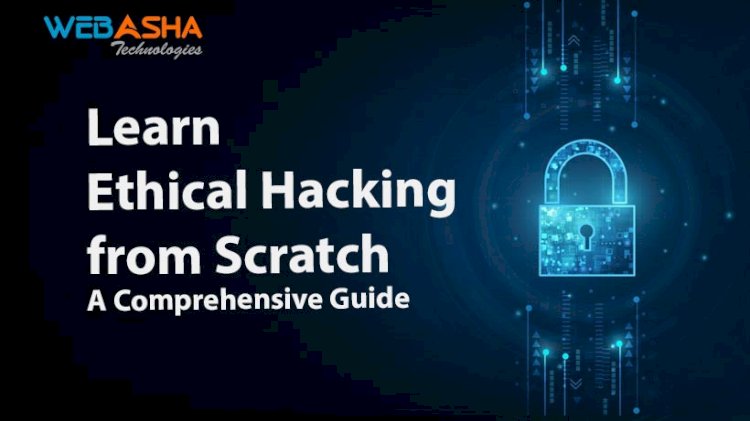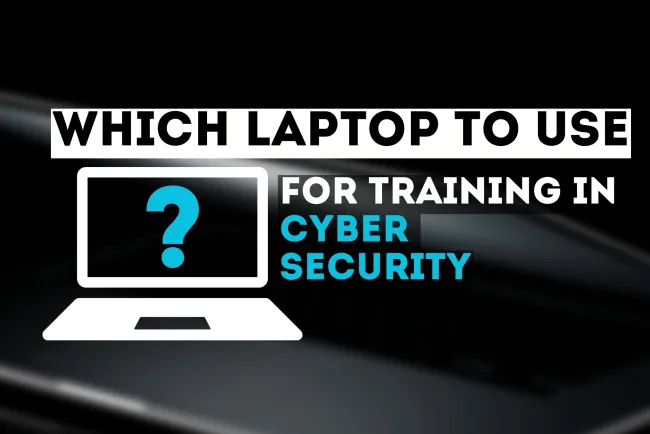Learn Ethical Hacking from Scratch | A Comprehensive Guide
Discover how to become an ethical hacker with our comprehensive guide. Learn the skills, knowledge, and certifications needed to protect computer systems and networks from cyber attacks.

Ethical hacking, also known as white-hat hacking or penetration testing, is the practice of identifying and exploiting vulnerabilities in computer systems and networks for the purpose of improving their security. With the increasing reliance on technology in every aspect of our lives, the need for skilled and ethical hackers has never been greater. This comprehensive guide will provide you with everything you need to know to learn ethical hacking from scratch.
Part 1: Understanding Ethical Hacking
In this section, we will explore what ethical hacking is, the difference between ethical hacking and illegal hacking, and the importance of ethical hacking in today's world.
Ethical hacking is the practice of using hacking techniques for the purpose of identifying and fixing security vulnerabilities in computer systems and networks. The goal of ethical hacking is to improve security, not to cause harm or steal information. Ethical hackers are professionals who are hired by organizations to test their systems and networks for vulnerabilities.
It's important to understand the difference between ethical hacking and illegal hacking. Illegal hacking, also known as black-hat hacking, is the use of hacking techniques for malicious purposes, such as stealing information or causing damage to computer systems. Ethical hacking, on the other hand, is done with the permission of the organization being tested and is focused on improving security.
The importance of ethical hacking cannot be overstated. With the increasing reliance on technology in every aspect of our lives, the potential for cyber attacks has never been greater. Ethical hackers play a critical role in identifying and fixing vulnerabilities before they can be exploited by malicious hackers.
Part 2: Learning Ethical Hacking
In this section, we will explore the skills and knowledge required to become an ethical hacker, as well as the tools and resources available to help you learn.
To become an ethical hacker, you will need a solid understanding of computer systems and networks, as well as the various tools and techniques used in hacking. Some of the key skills required for ethical hacking include:
-
Programming: A good understanding of programming languages such as Python, Ruby, and Java is essential for ethical hacking.
-
Networking: A solid understanding of networking protocols and concepts, such as TCP/IP, DNS, and routing, is essential for ethical hacking.
-
Operating Systems: Knowledge of various operating systems, such as Linux and Windows, is important for ethical hacking.
-
Hacking Tools: Familiarity with hacking tools such as Nmap, Metasploit, and Wireshark is essential for ethical hacking.
-
Cybersecurity: Understanding of cybersecurity concepts such as encryption, authentication, and access control is important for ethical hacking.
There are many resources available to help you learn ethical hacking. Online courses, books, and tutorials can all be valuable sources of information. Some popular online courses include:
-
Udemy: "Learn Ethical Hacking From Scratch" by Zaid Sabih
-
Cybrary: "Ethical Hacking and Penetration Testing" by Georgia Weidman
-
Pluralsight: "Ethical Hacking: Hacking Web Applications" by Troy Hunt
-
Coursera: "Introduction to Cybersecurity Tools & Cyber Attacks" by IBM
Part 3: Becoming an Ethical Hacker
In this section, we will explore the steps you can take to become a professional ethical hacker.
-
Get Educated: Start by gaining a solid understanding of the skills and knowledge required for ethical hacking. Take online courses, read books and tutorials, and practice using hacking tools.
-
Build a Portfolio: As you gain experience, start building a portfolio of your work. This can include reports on vulnerabilities you have identified and fixed, as well as any other relevant work.
-
Get Certified: There are many certifications available for ethical hackers, including the Certified Ethical Hacker(CEH) certification from the International Council of E-Commerce Consultants (EC-Council) and the Offensive Security Certified Professional (OSCP) certification from Offensive Security. These certifications can help demonstrate your knowledge and expertise to potential employers.
-
Gain Experience: Look for opportunities to gain real-world experience in ethical hacking. This could include internships, freelance work, or volunteering for non-profit organizations.
-
Network: Build relationships with other professionals in the cybersecurity industry. Attend conferences and events, participate in online forums, and join professional organizations.
-
Stay Up-to-Date: The world of cybersecurity is constantly evolving, so it's important to stay up-to-date on the latest trends and techniques. Attend training sessions and conferences, read industry publications, and participate in online communities to stay informed.
Conclusion:
Ethical hacking is a critical component of cybersecurity, and there is a growing demand for skilled professionals in this field. With the right skills, knowledge, and experience, you can become a successful ethical hacker and help protect computer systems and networks from cyber attacks.
By understanding the difference between ethical and illegal hacking, gaining a solid education in the skills and knowledge required for ethical hacking, and pursuing certification and real-world experience, you can build a successful career in this exciting and important field. Remember to stay up-to-date on the latest trends and techniques, and to network with other professionals in the cybersecurity industry to stay informed and advance your career.














![Top 10 Ethical Hackers in the World [2025]](https://www.webasha.com/blog/uploads/images/202408/image_100x75_66c2f983c207b.webp)








